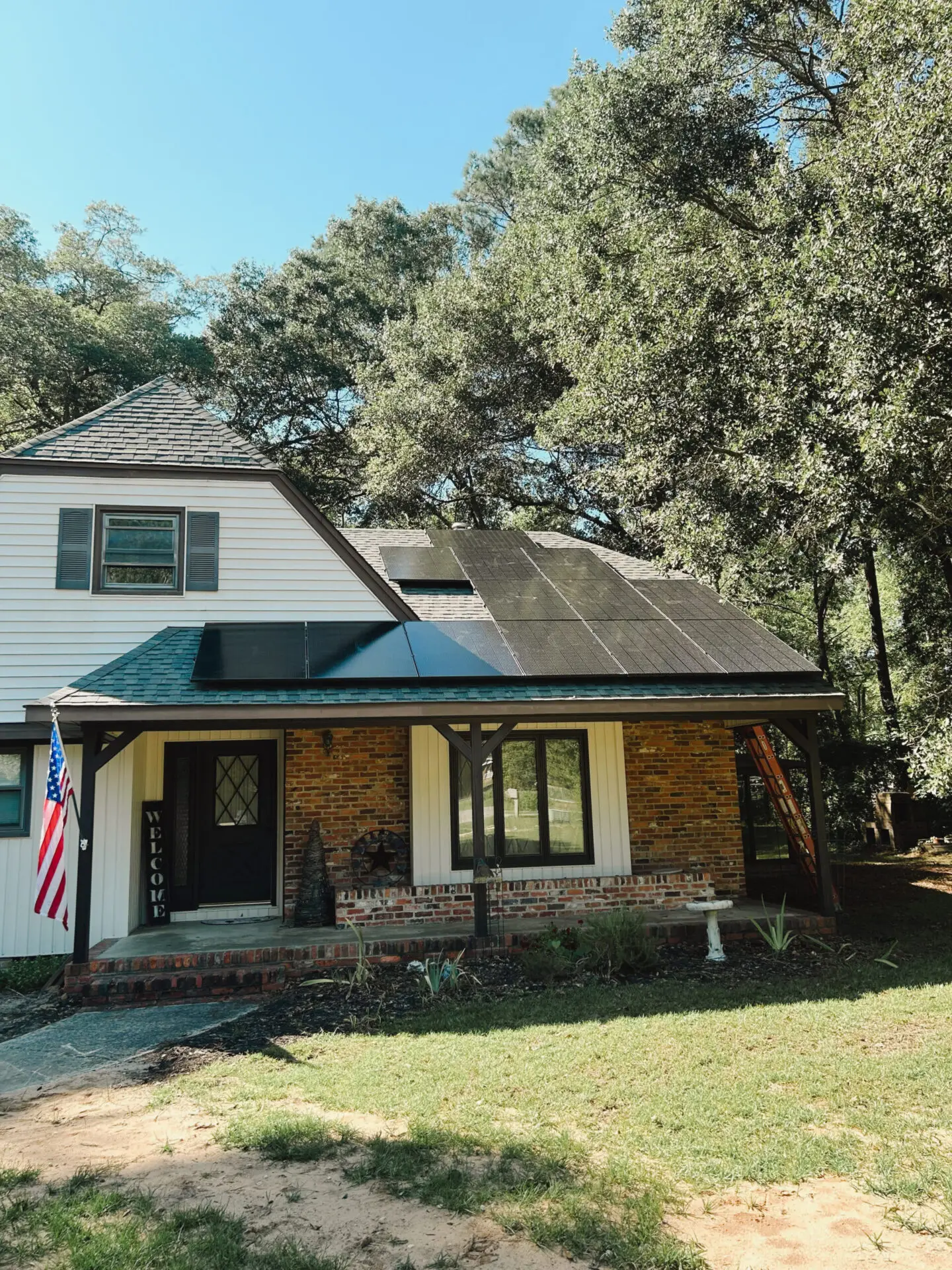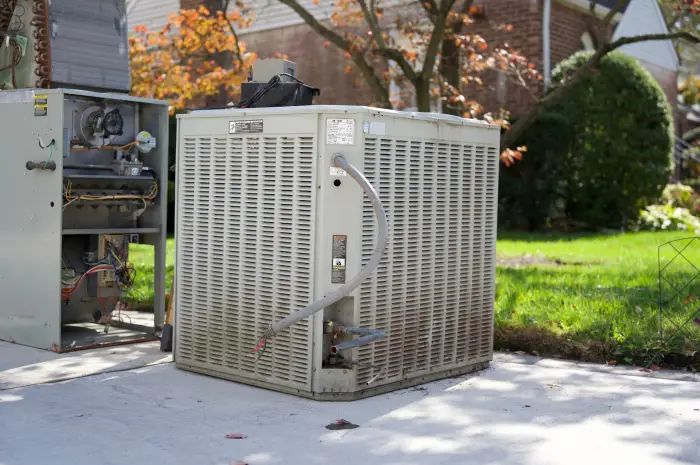Solar panels have become a popular choice for eco-conscious homeowners and businesses as the world turns towards renewable energy. Solar power is crucial in household energy consumption, offering a sustainable and efficient alternative to traditional energy sources. But how do you know if your solar energy system performs at its best? Understanding solar panel efficiency is key. Learn more about how solar panel efficiency is measured, the factors that affect it, and provide tips to maximize your panels’ performance.
How Solar Panel Efficiency is Measured
Solar panel efficiency refers to the ability of a solar panel to convert sunlight into usable electricity. Not all solar panels are equally efficient in this conversion, so it’s important to consider the overall expected output and efficiency when choosing a model. It’s expressed as a percentage and calculated by comparing the solar panel output to the amount of solar energy it receives. Here’s a basic formula:
Efficiency (%) = (Electrical output (Watts) / Solar input (Watts)) x 100
For example, if a solar panel produces 200 watts of electricity from 1000 watts of sunlight, its efficiency is 20%.
Factors Affecting Solar Panel Efficiency
Several factors influence the efficiency of solar panels, including the type of solar cell technology used. Advanced solar cell technology, such as monocrystalline or polycrystalline silicon cells, thin-film solar cells, or multi-junction cells, can achieve higher efficiencies than traditional silicon PV cells. Upgrading to an intelligent inverter with advanced features like maximum power point tracking (MPPT) can enhance the overall system performance of individual solar panels by allowing each panel to operate at its highest efficiency.
1. Type of Solar Cells and Technology
The type of solar cell used in the panel significantly affects efficiency. There are three main types of solar cells:
- Monocrystalline: These cells are made from a single crystal structure and typically offer the highest efficiency rates, around 15-20%.
- Polycrystalline: Made from multiple crystal structures, polycrystalline cells are less efficient than monocrystalline cells, with efficiency rates of 13-16%.
- Thin-film: These are the least efficient, with rates between 10% and 12%, but they are cheaper and more flexible.
2. Temperature
Solar panels are more efficient at lower temperatures. High temperatures can reduce their efficiency, which is why proper ventilation and placement are crucial.
3. Angle and Orientation
The angle and orientation of your solar panels relative to the sun play a critical role in their efficiency. Ideally, panels should be oriented to receive maximum sunlight throughout the day.
4. Shading and Dirt
Shading from trees, buildings, or other obstructions can significantly reduce solar panels’ electricity. Dirt, dust, and debris on the panels can also block sunlight and decrease performance.
5. Age of the Panels
Like most technologies, solar panels degrade over time. The efficiency of solar panels typically decreases by about 0.5-1% per year.
Tips to Maximize Solar Panel Efficiency
Maximizing your solar panels’ efficiency involves proper solar installation and ongoing maintenance. Here are some tips:
- Choose High-Efficiency Panels: Investing in the most efficient solar panels may have a higher upfront cost, but it can pay off in the long run with greater energy production and savings.
- Optimize Panel Placement: Ensure your panels are installed at the optimal angle and orientation for your location. In the Northern Hemisphere, this generally means facing south at an angle equal to your latitude.
- Keep Panels Clean: Regularly clean your solar panels to remove dirt, dust, and debris. This ensures they receive maximum sunlight and operate at peak efficiency.
- Minimize Shading: Trim trees and remove obstructions that cast shadows on your solar panels. Even partial shading can significantly reduce the output.
- Monitor Performance: Use monitoring systems to keep track of your solar panel system’s performance. This can help you identify and address any issues promptly.
- Maintain Proper Ventilation: Ensure adequate airflow around your panels to prevent overheating. Installing them on a raised mount can help with this.
- Schedule Regular Maintenance: Regular maintenance by a professional can help keep your panels in top condition and extend their lifespan.
Innovations in Solar Panel Efficiency
Innovations are continually being developed as technology progresses to improve solar panels’ efficiency. Recent advancements include bifacial solar panels, which can capture sunlight on both sides, significantly increasing efficiency. Another breakthrough is the integration of solar tracking systems, which adjust the position of solar panels to follow the sun’s path throughout the day. This technology ensures that the panels receive maximum sunlight exposure, enhancing efficiency.
Moreover, research into new materials, such as perovskite solar cells, shows great promise. These materials have the potential to surpass the efficiency of traditional silicon-based solar cells. Additionally, hybrid systems that combine different types of solar cells are being developed to maximize energy capture across various wavelengths of light. These innovations make solar panels’ efficiency a focal point in the quest for more sustainable and cost-effective energy solutions.
Choosing the Right Solar Panel System
Selecting the right solar panel system for your needs is crucial to maximizing efficiency and ensuring the long-term performance of your solar system. When considering a solar panel system, it’s important to evaluate factors such as the type of solar cells, the efficiency ratings, and the overall system design. High-efficiency panels, while potentially more expensive up front, can provide greater energy output and savings over time.
Additionally, the size and capacity of the solar panel system should be considered. An appropriately sized system for your energy needs and geographical location will perform more efficiently. Choosing a reputable installer who can design and position the system to optimize sunlight exposure and minimize shading is also essential. Furthermore, incorporating energy storage solutions, such as batteries, can enhance the effectiveness of your solar panel system by storing excess energy for use during periods of low sunlight.
By carefully selecting and configuring your solar panel system, you can ensure that it operates at peak efficiency and provides reliable and sustainable energy for years to come.
The Future of Solar Panel Efficiency
The solar industry continually evolves, with ongoing research and development to improve efficiency. Advances in materials, such as perovskite solar cells, and innovations in panel design promise to increase efficiency rates and make solar energy even more accessible and cost-effective. Introducing efficient solar panels has revolutionized residential use, with companies producing panels with higher efficiency ratings, leading to significant electricity production and cost savings.
Understanding and maximizing solar panel efficiency is essential for getting the most out of your solar investment. You can ensure your panels operate at peak efficiency by considering the type of solar cells, managing temperature, optimizing placement, and maintaining cleanliness. Stay informed about the latest advancements in solar technology, and remember that regular maintenance is key to long-term performance.





